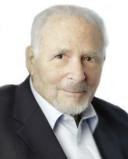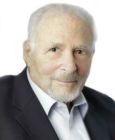Is love an emotion? Let’s put aside loving your job or a piece of clothing—when the word “love” is used as a superlative. That still leaves romantic love and parental love: Are either of these emotions?
I think not, and here’s why: The time frame for emotions and love are radically different. Emotions come and go, sometimes lasting seconds—and rarely more than an hour. If we recollect that we were angry for an hour or afraid for an hour, close examination reveals that we actually felt the emotion a few times within the hour. It wasn’t one continuous emotional episode.
Both parental love and romantic love involve long-term commitments and intense attachments to another person. Neither is itself an emotion. Emotions can be very brief, but love endures. However, while romantic love can endure throughout a lifetime, it often does not. Parental love, more typically, is a lifelong commitment—although there are exceptions. Loving your child doesn’t exclude fear of the risks they take, annoyance when they don’t show up for a meeting with you, or sadness when they are disappointed.
While romantic love does not usually endure as long as parental love, sometimes it does. Even when it doesn’t, it’s not a momentary state but, again, a committed attachment during which many different emotions are felt. In parental love and romantic love, you care, you’re involved, and you’re more susceptible to experiencing a variety of emotions. Those individual emotions don’t endure; they come and go—lasting only seconds or at most minutes, not a lifetime.
If this blog has raised questions for you on the concept of love as an emotion, see Paul’s book, Emotions Revealed, for a straightforward and easy read on this fascinating area.
Dr. Paul Ekman is a well-known psychologist and co-discoverer of micro expressions. He was named one of the 100 most influential people in the world by TIME magazine in 2009. He has worked with many government agencies, domestic and abroad. Dr. Ekman has compiled over 40 years of his research to create comprehensive training tools to read the hidden emotions of those around you. To learn more, please visit: www.paulekman.com.


